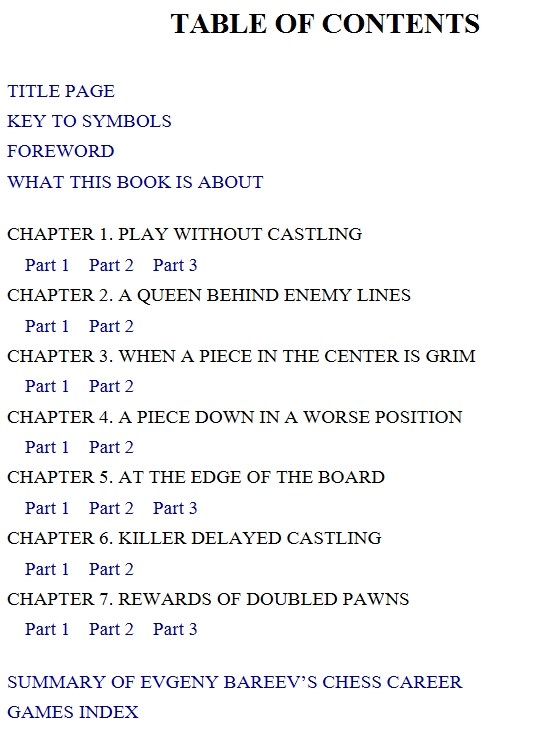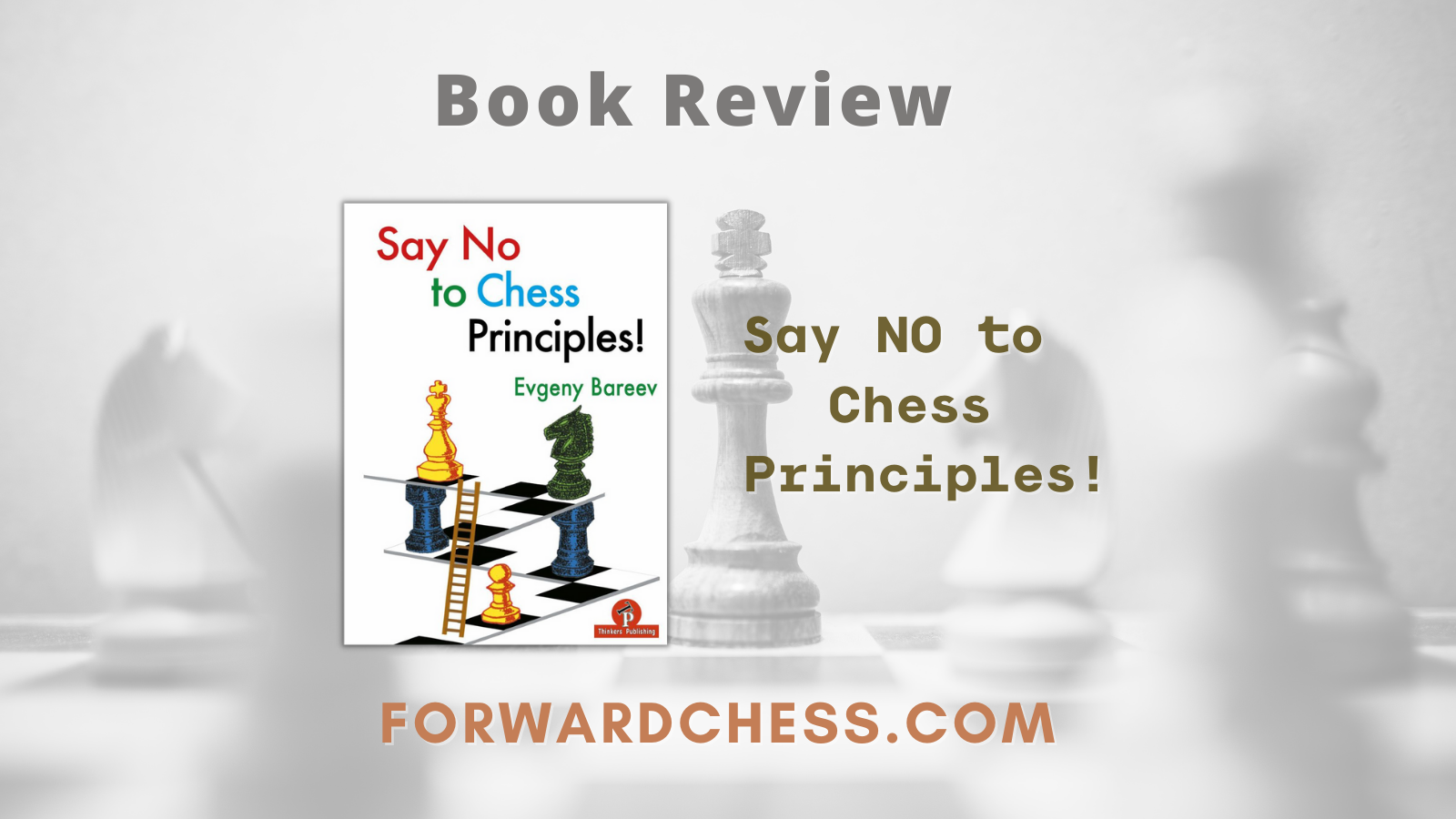Review: Say No to Chess Principles!
“It is the aim of the modern school not to treat every position according to one general law, but according to the principle inherent in the position.” – Richard Réti, in “Modern Ideas in Chess”, 1923.
Richard Réti wrote these prophetic words nearly a century ago, and he was referring to the rise of the hypermodern school of chess. This attitude has only strengthened since that time and modern elite players seem to have “if it works, play it” attitude to chess, particularly when their analysis is backed up by super-strong chess engines. This has led to what John Watson has termed “rule-independence”, that is, the rejection of general rules in chess.
GM Evgeny Bareev’s “Say No to Chess Principles!” is a celebration of this attitude, and the book is mostly illustrated by an entertaining collection of his own games. The theme of the book is set by the first game, which starts as follows.
If you don’t know the game, you would probably assume that White is a weak player who doesn’t understand the principle of development. However, this is the game Alekhine-Rubinstein, The Hague, 1921! Bareev writes “It’s not just that Alekhine has not castled but that he isn’t developed either! On the other hand, Rubinstein, a classical positional player did everything by the rules and still wound up in a worse position.” Alekhine went on to win the game in 50 moves.
The table of contents above shows the standard rules that are flouted in the example games. Apart from the five games in the chapter “What This Book is About”, the remaining 55 games were all played by Bareev, and so this book is also a loose autobiography. At his peak, he was rated number four in the world, and it is a testament to his strength that he could often break the standard rules and still win.

Each game begins with a short introduction that places the game in the context of his chess career and his on-going rivalry with other top players. Bareev freely shares his highs and lows, and provides some perceptive and witty comments on his opponents. For example, he writes of his frequent rival Vassily Ivanchuk “Stating that I didn’t find Vassily Ivanchuk (Divine Vassily) an easy opponent doesn’t really say enough.” In the game Topalov-Bareev, Wijk ann Zee 2004 (0-1, 49), he writes after Topalov’s 16. Bxe7?? “Rarely will any world champion make such a move, even if he was on life support, hooked up to an IV.” At the end of this game, he writes “If somebody told me Veselin would become the world chess champion a year later, I’d have thought that person a lunatic.” The book is full of such jovial and good-natured comments.
The annotations to the games are very instructive and provide good explanations about when the standard chess rules can be violated or ignored. Bareev doesn’t go overboard with lots of variations that can overwhelm the reader, but he provides enough details to understand the games and the critical moments.
Two excellent examples from the book are given below, with annotations from the book.
The book also includes a summary of Bareev’s career. Overall, this is a great book that provides a good selection of well-annotated games together with some fine teaching material on rule breaking in chess. The witty writing style is an added bonus to an already instructive and enjoyable book.
- 1000 Published books on Forward Chess - November 15, 2024
- Book Review: A Guide To Chess Improvement - September 9, 2024
- Review: Chess Coach by Vladimir Barsky - August 26, 2024


